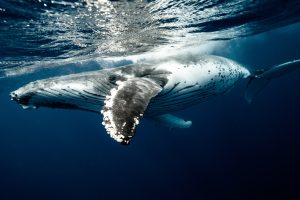A NATURALHISTORY
From the very beginnings of mankind, the world’s oceans and water ways have provided essential sustenance that has supported the development of life. The consumption of fisheries by humans and other animals represents an important part of our modern world, as well as our natural history.Today, our ability to take fish out of the oceans, worldwide demand for fishery products and our capability to manage what we catch are all at new levels. These factors are now competing with each other as we endeavor to find the right balance in the oceans between satisfying demand for a highly nutritious food item and the need to maintain fish stocks for the future.
Also available in:
Russian
French
Arabic



